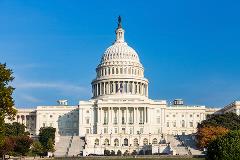
Action Must Wait for 117th Congress
Despite intense Congressional negotiations in the final days of the 116th Congress coupled with lobbying and grassroots efforts by SMACNA and multiemployer pension plan stakeholders, bipartisan agreement on pension relief, along with authorization of Composite Plans, could not be reached in time to be included in the final bills of this session of Congress.
A joint statement issued by Sen. Grassley (R-IA), Chair of the Senate Finance Committee, and Sen. Alexander (R-TN), Chair of the Senate Health, Education, Labor, and Pensions (HELP) Committee, signaled the end of pension negotiations. While each side made serious concessions, the two chairs announced “we have yet to find an agreement that satisfies our respective principles and objectives for resolving this situation. We have reached the point where we are out of time to strike an agreement that can be scored by the Congressional Budget Office and reviewed by our Senate and House colleagues to include in an end-of-year package.”
The situation remains dire for approximately 130 plans and for the Pension Benefit Guaranty Corporation (PBGC). Co-chairs Grassley and Alexander stressed that the Republican Senate remains “committed to finding a solution and will continue looking for a balanced, sensible approach to resolve this increasingly critical problem.”
Sen. Grassley will remain the key Senate player in pension reform in 2021, while Sen. Alexander is retiring. Senator Crapo (R-WY), will be the new Chair of Senate Finance, assuming Republicans retain control of the Senate after the Georgia special elections.
Sen. Grassley gave an indication he will remain a champion of pension relief and reform, when he introduced a Senate pension bill that included Composite Plans. The bill, which was not enacted this session, is based on the Grassley-Alexander White paper from last year.
The negotiations between Republicans and Democrats faltered trying to resolve how much federal funding would be available for failing plans and the PBGC, and how much would be carried by stakeholders in all multiemployer plans. The next step will focus on including pension legislation in a potential new COVID relief package in the first quarter of 2021.
SMACNA will be calling on members and chapters in 2021 to help push Composite Plans over the finish line once the 117th Congress convenes.
Major SMACNA Endorsed Provisions in End of Session Spending – COVID Package
Congress passed a sweeping year-end $2.3 trillion package that includes $1.4 trillion to fund the government and $900 billion in coronavirus relief.
Contained in the major legislative package included long-endorsed SMACNA priorities over many years of contractor advocacy, including:
- Energy efficient commercial buildings deduction. The provision makes permanent the deduction for energy efficiency improvements to building envelope, lighting, heating, cooling, ventilation, and hot water systems of commercial buildings.
- PPP Reforms. The COVID bill clarifies that businesses can deduct expenses associated with their forgiven PPP loans, in addition to expanding the employee retention credit intended to prevent layoffs and allowing 501C6 groups to secure PPP loan funds.
- $325 billion small business loans assistance. Small businesses (those with under 300 employees) would see a total of $325 billion, including $284 billion in loans through the Paycheck Protection Program.
- School construction funding. Included in the $82 billion total for colleges and universities is more than $4 billion for a governors’ relief fund, more than $54 billion for public K-12 schools and nearly $23 billion for a higher education fund.
- Federal contractor relief. The package continues a CARES Act program that allows contractors to keep employees on the payroll even if federal facilities close.
The bill also contains comprehensive federal, state building energy efficiency package and extends a payroll tax subsidy for employers offering workers paid sick leave.